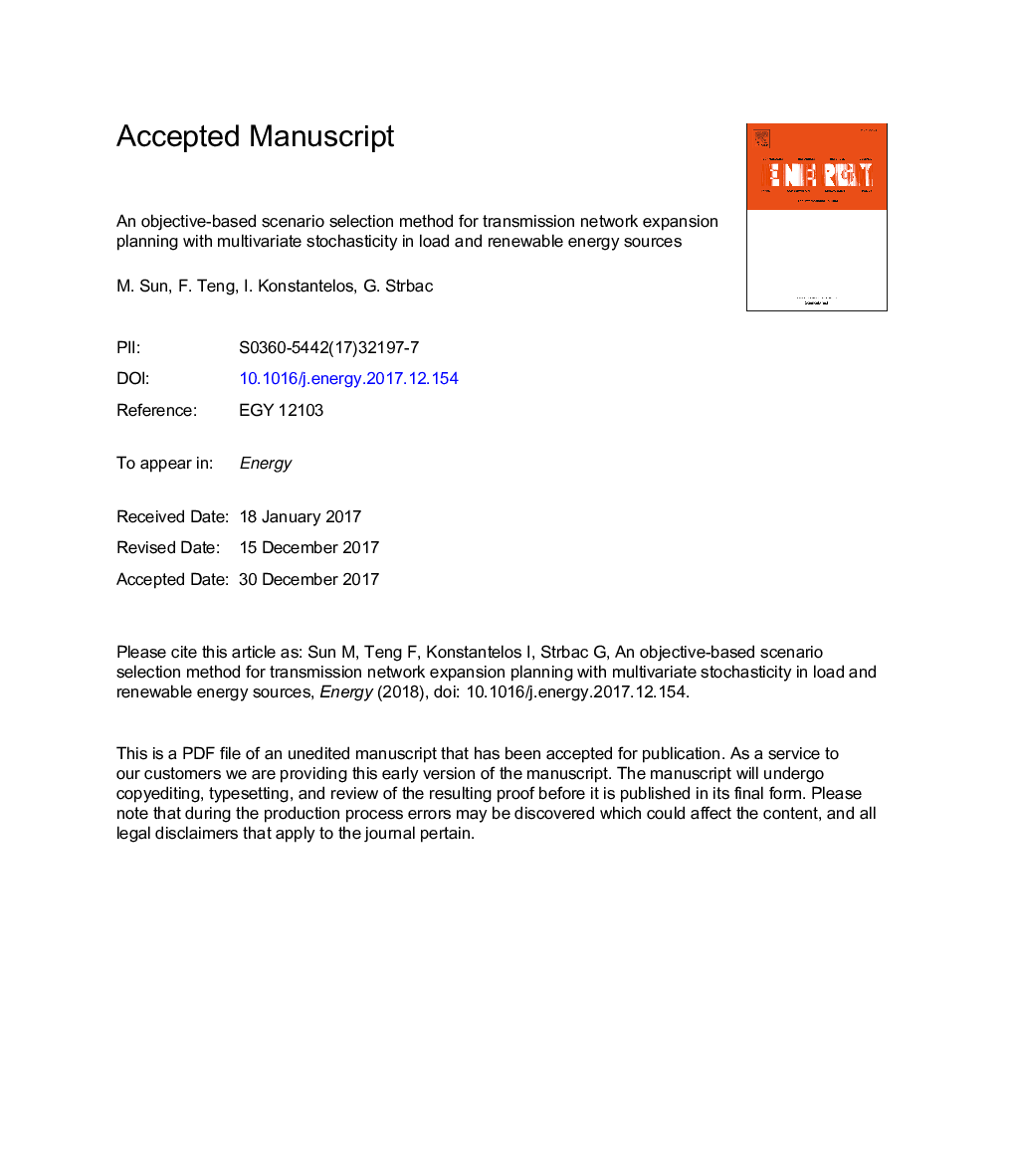| Article ID | Journal | Published Year | Pages | File Type |
|---|---|---|---|---|
| 8072272 | Energy | 2018 | 21 Pages |
Abstract
Transmission Network Expansion Planning (TNEP) in modern electricity systems is carried out on a cost-benefit analysis basis; the planner identifies investments that maximize the social welfare. As the integration of Renewable Energy Sources (RES) increases, there is a real challenge to accurately capture the vast variability that characterizes system operation within a planning problem. Conventional approaches that rely on a large number of scenarios for representing the variability of operating points can quickly lead to computational issues. An alternative approach that is becoming increasingly necessary is to select representative scenarios from the original population via clustering techniques. However, direct clustering of operating points in the input domain may not capture characteristics which are important for investment decision-making. This paper presents a novel objective-based scenario selection framework for TNEP to obtain optimal investment decisions with a significantly reduced number of operating states. Different clustering frameworks, clustering variable s and clustering techniques are compared to determine the most appropriate approach. The superior performance of the proposed framework is demonstrated through a case study on a modified IEEE 118-bus system.
Related Topics
Physical Sciences and Engineering
Energy
Energy (General)
Authors
M. Sun, F. Teng, I. Konstantelos, G. Strbac,
